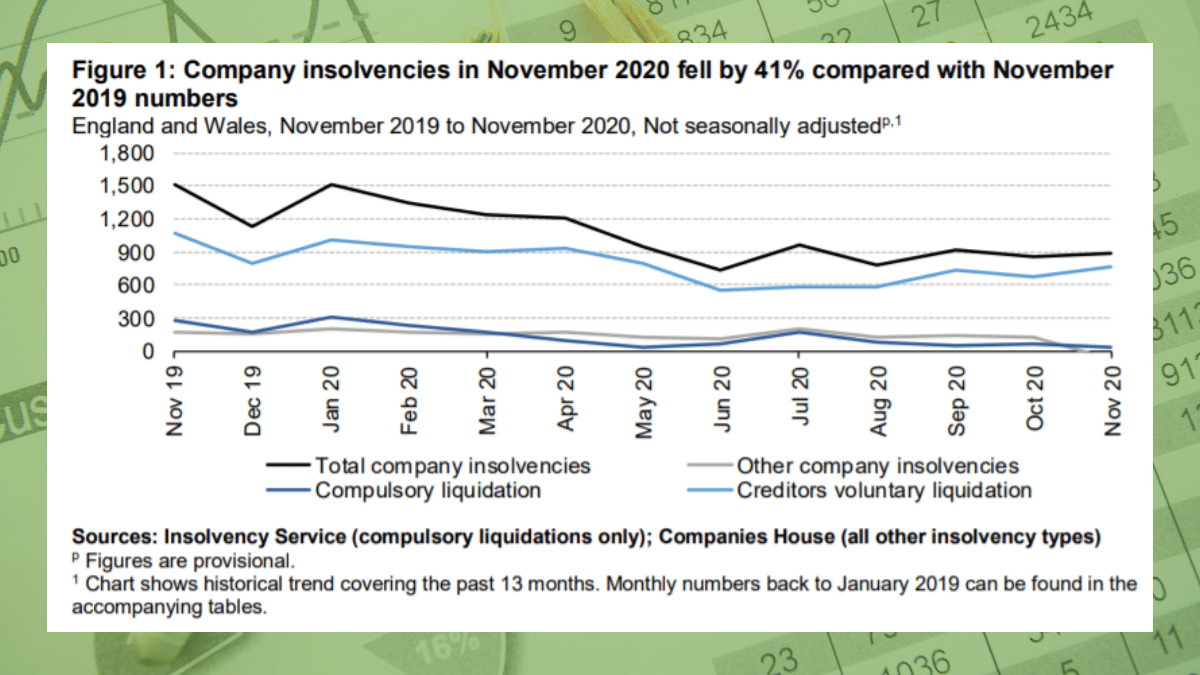What Does Insolvency Practitioner Do?
Table of ContentsGetting The Insolvency Practitioner To WorkThe smart Trick of Insolvency Practitioner That Nobody is Talking AboutHow Insolvency Practitioner can Save You Time, Stress, and Money.Insolvency Practitioner Can Be Fun For Everyone7 Simple Techniques For Insolvency PractitionerInsolvency Practitioner Fundamentals ExplainedThe Facts About Insolvency Practitioner Revealed
Insolvency is when responsibilities are more than the value of the company, or when a debtor can not pay the debts they owe. A company can end up being bankrupt due to a variety of circumstances that cause inadequate money circulation. When confronted with bankruptcy, a business or individual can get in touch with financial institutions straight and restructure financial debts to pay them off.Bankruptcy can lead to insolvency proceedings, in which lawful activity will certainly be taken versus the bankrupt individual or entity, and possessions might be liquidated to pay off exceptional debts. Company owner may get in touch with creditors directly and restructure financial obligations into more convenient installations. Financial institutions are typically amenable to this strategy due to the fact that they wish to be settled and stay clear of losses, even if the repayment is on a delayed timetable.
Examine This Report about Insolvency Practitioner
The owner develops a proposition detailing exactly how the financial debt may be restructured utilizing price decreases or other prepare for assistance. The proposition shows lenders exactly how business may produce sufficient money circulation for profitable procedures while paying its debts. Normally, a forgiven financial debt may be thought about earnings by the Irs (INTERNAL REVENUE SERVICE).
Little Known Facts About Insolvency Practitioner.
Business might wind up paying large quantities of money in problems and be overcome procedures. When operations cease, so does the company's income. Lack of income causes accounts payable and lenders requesting money owed to them. Some firms come to be bankrupt since their goods or services don't evolve to fit customers' changing demands.
Expenses go beyond earnings and expenses stay unsettled. Cash-flow insolvency occurs when a company has the assets to cover their financial obligations yet they are in the wrong type, such as actual estate rather of fluid funds. Balance-sheet bankruptcy, on the various other hand, suggests an absence of possessions in any type of type to cover financial obligations.
The IRS states that an individual is insolvent when the overall obligations go beyond complete possessions. A insolvency, on the other hand, is a real court order that shows how a bankrupt individual or business will repay their creditors, or how they will certainly market their properties in order to make the settlements.
The Definitive Guide to Insolvency Practitioner

Financial debt consolidation is when you combine numerous lendings into one brand-new financing, commonly to attain better terms. Bankruptcy is not the exact same as insolvency, although a firm that has come to be financially troubled might declare personal bankruptcy. Insolvency is the state of not having the ability to pay your obligations while personal bankruptcy is a legal process to release your financial obligations.
Comprehending the aspects that can result in bankruptcy, such as overspending, can aid you protect against bankruptcy and its effects.
The 7-Minute Rule for Insolvency Practitioner
It is popular that directors and police officers of companies (and supervisors of limited obligation firms) owe fiduciary tasks to their organizations and their shareholders (or participants). These fiduciary obligations are defined by state laws and, though there look what i found are variations from one state to another, they usually consist of an obligation of loyalty and a task of treatment.
The duty of care needs supervisors and officers to exercise diligence, to make enlightened decisions, and to act in good confidence to make sure that their actions are in the very best rate of interest of the company. Beyond the scope of this discussion, some states allow these responsibilities to be restricted either by so noting in the organizational files or abiding with other needs.
Some Ideas on Insolvency Practitioner You Should Know
The majority of states specify insolvency in 2 methods( 1) when a company's liabilities come to be higher than the sum of its properties or (2) when the business becomes not able to pay its debts as they become dueand welcome both meanings (Insolvency Practitioner). The shift in obligations takes place since when a company is insolvent, there is no value in the company past that owed to the firm's lenders so that the equity owners no more have a financial stake in the firm
Be mindful about giving shareholders favoritism at the cost of lenders (e.g., licensing and funding a dividend or a stock redemption). Be careful regarding preferential therapy in between classes of shareholders. Clear up efforts to learn all the facts before taking a details strategy; supervisors must truly think that any decisions made are in the ideal passions of the corporation in its totality (i.e., choices will be evaluated in hindsight in light of the effect of such activities on the company).
In any kind of personal bankruptcy or insolvency case, payments made to specific creditors at the expense of other creditors can be clawed back, particularly if there is some link between the company and the lender. Consider recommending at a yearly stockholder conference (or any type of other conference of shareholders) a resolution affirming that all previous service choices and actions taken by the directors and police officers of the company were absorbed great belief after a workout of sensible treatment.
Insolvency Practitioner Things To Know Before You Get This
Fully disclose any type of personal or company connections with celebrations beyond of transactions including the firm to avoid the look of a you can try here problem of rate of interest. In reviewing potential fund increasing deals or a sale of possessions of the struggling corporation, be aware that these transactions may be looked at later on because of any type of succeeding expansion of supervisors' fiduciary obligations to consist of lenders.
Comments on “Our Insolvency Practitioner Ideas”